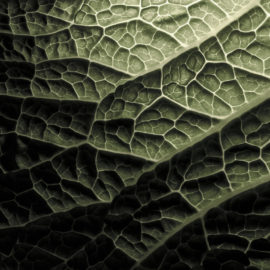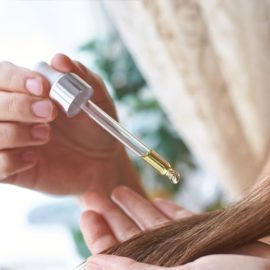You’ve likely heard of green beauty – but what about ‘blue beauty’? Unlike green, blue beauty isn’t just about using natural, sustainably sourced ingredients. It’s about how both packaging and ingredients affect the environment, particularly marine ecosystems. Right now, 8.75 million metric tons of plastic enter our oceans each year, causing considerable harm to marine life. Equally, synthetic fragrance and silicones in personal care products pollute water sources. Green beauty and skincare are evolving, and now, ocean skincare is a hot new trend.
This is because people are concerned about pollution in our oceans. After high-profile documentaries and campaigns, such as Blue Planet hosted by renowned naturalist David Attenborough, consumers are going green – or blue, if you will. In the UK, 58% of Gen Z beauty users always look for products that are environmentally friendly (Mintel, 2019). Looking to the future, these parameters are set to become more exacting as consumer awareness increases. Here, we look at the ocean skincare phenomenon and introduce Provital’s contribution to the trend.
Content
How do beauty products affect our oceans?
According to researchers, by 2050, there will be more plastic in our oceans than fish. This is an alarming statistic, demonstrating that we urgently need to reduce our plastic consumption. The beauty industry has a substantial role to play in this project; Paula Chin, Sustainable Materials Specialist at WWF UK, explains that the beauty industry produces 120 billion units of packaging a year. To address the plastics crisis brands need to spearhead the move towards recyclable, reusable, and refillable packaging.
However, packaging isn’t the only problem. ‘Microplastics’ such as microbeads pose a significant threat, as these polymer crumbs can be ingested by marine life. The animals most at risk are plankton, invertebrates, and small fish, which in turn, affect the entire food chain. This accumulation in the food chain even has the capacity to affect human health too, as people can consume contaminated seafood.
Provital’s blue proposal for ocean skincare
Consumers are becoming increasingly wise to ‘greenwashing’ where brands have only surface-level sustainable credentials. Blue beauty demonstrates a holistic commitment to the environment, placing the planet’s most delicate and important ecosystems at its center. Brands that use all-natural silicone and polymer-free ingredients will be most attractive. Meanwhile, those that use innovative solutions for packaging, such as recycled plastics from the ocean, will stay ahead of the curve.
Considering consumers’ rising concern for marine ecosystems, ‘blue’ storytelling is a powerful narrative. Provital’s proposition for the ocean skincare trend is the active Polyplant Marine, a blend of ocean-extracted ingredients that enhance the ‘blue’ narrative due to its marine origin. Developed from five species of sustainably sourced algae, this ingredient restores the skin’s natural balance and vitality.
Algae are rich in ion-based elements (chelate forms of oligo-elements, vitamins and minerals), which provide a natural way to restore skin vitality and to improve skin appearance. Thus, Polyplant Marine is of great use to brands seeking to formulate ocean skincare products with skin tonifying, revitalizing and stimulating properties.
No comments yet
There are no comments on this post yet.





Leave a comment